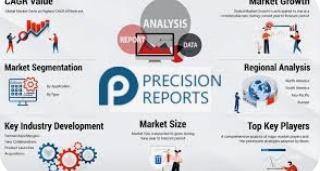A revolution is underway within the food industry. Fueling this transformation is the B2B food marketplace, a digital platform that serves as a catalyst for growth and innovation. These marketplaces connect suppliers, distributors, and buyers, creating a vibrant ecosystem with opportunities. So, embark on a journey to unravel how these platforms drive business expansion and pave the way for success.
1. Enhanced Reach and Visibility
These marketplaces play a crucial role in the food industry by acting as vital hubs for interaction and exposure. These online platforms allow businesses to showcase their products and services to a broader audience, effectively transcending the limitations imposed by geographical boundaries. By doing so, these platforms help businesses tap into new, previously inaccessible areas, thus fostering growth and expansion. The enhanced visibility afforded by these B2B platforms is not merely about reaching a wider audience but also about bolstering brand recognition and building consumer trust. As businesses list their products on these platforms, they benefit from the credibility and respect associated with them.
2. Streamlined Procurement Processes
The streamlined procurement processes facilitated by the B2B food marketplace are a game-changer for efficiency within the food industry. These platforms simplify the buying process by aggregating offerings from various suppliers into a single, easily navigable interface where buyers can compare prices, quality, and service levels. The reduced time and effort required to source products allows businesses to focus more on their core activities, such as product development and customer engagement. Moreover, integrating automated tools for order processing and inventory management reduces errors and operational costs, leading to a more agile business model that can swiftly respond to changes and customer needs.
3. Data-Driven Decision Making
These platforms are rich sources of data that, when effectively analyzed, provide deep insights that can significantly influence business strategies. These insights include understanding dynamics, consumer buying patterns, and competitive analysis. Armed with this information, businesses can make informed decisions about product positioning, promotional strategies, and pricing models. Predictive analytics, another critical feature of these platforms, allows companies to anticipate trends, adjust their strategy proactively, and maintain competitiveness. This data-centric approach aids in immediate decision-making but also helps in long-term strategic planning, such as identifying potential new spaces or product innovations.
4. Collaboration and Innovation
The collaborative environment of these marketplaces fosters a culture of innovation crucial for long-term sustainability. These platforms create unique networking opportunities where businesses can form strategic partnerships with other industry players. Such collaborations can lead to joint ventures, shared technology initiatives, or co-marketing agreements, significantly enhancing each participant’s market position. Additionally, these interactions often lead to a cross-pollination of ideas, spurring innovations that might not have occurred in a more isolated setting. For instance, a dairy supplier might partner with a tech company to develop advanced packaging solutions that extend their products’ shelf life, opening up new market opportunities.
5. The Room For Scalability
The scalable nature of these marketplaces allows businesses to grow at their own pace without the need for significant upfront investments in infrastructure or marketing. These platforms can handle increased transactions and customer interactions with minimal incremental costs, making it easier for businesses to expand their presence. Additionally, the flexibility offered by these marketplaces means that businesses can quickly adapt to consumer preferences or regulatory landscape changes. For example, if a new health trend emerges, suppliers can promptly adjust their product offerings to cater to this demand, ensuring they remain relevant and competitive.
The B2B food marketplace is transforming the food industry by enhancing how companies connect, operate, and make decisions. These platforms not only facilitate more efficient and informed operations but also drive innovation and collaboration that help businesses stay competitive in a fast-evolving marketplace. As more businesses recognize and leverage these benefits, these marketplaces will continue to be a central component in the growth strategies of forward-thinking companies in the food industry.




